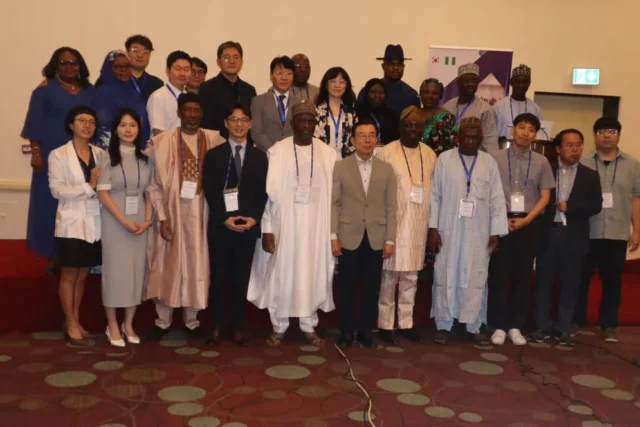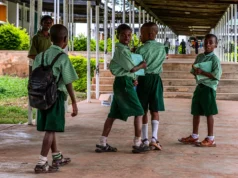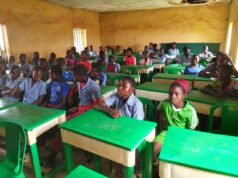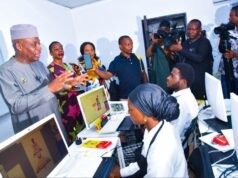In a notable milestone for Nigeria’s education sector, the Universal Basic Education Commission (UBEC) and the Korea International Cooperation Agency (KOICA) reaffirmed their commitment to transform learning through the integration of technology, marking the conclusion of the first phase of their collaborative “Smart Education” initiative. The closing workshop, held in Abuja, brought together teachers, school administrators, students and key partners to reflect on achievements, share insights and chart the path ahead.
At the event, KOICA’s Country Director in Nigeria, Eunsub Kim, highlighted how what began as a modest pilot has grown into a dynamic demonstration of what technology-enabled teaching and learning can achieve. He emphasised that true “smart education” isn’t merely about installing gadgets or building classrooms—it’s about equipping teachers with the digital fluency they need, enabling students to engage, collaborate and think critically. Meanwhile, UBEC’s Director of Planning, Research & Statistics, Osahon Igbinoba, described the “Smart School” concept as a model aligned with global education standards and one that can help redefine Nigeria’s basic education system.
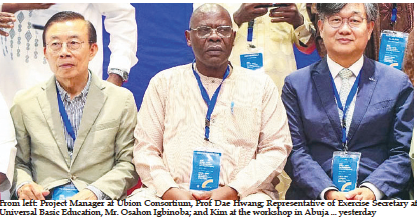
Table of Contents
What the Collaboration Has Delivered
Since its launch, the UBEC–KOICA partnership has seen measurable progress: the first phase saw the rollout of smart classrooms, content-production studios and intensive training programmes for teachers. According to statements made during the workshop, these interventions have started to shift how students learn and how teachers teach.
Kim emphasised: “This shows that smart education is not about devices or connectivity, but empowering teachers, engaging pupils, and creating an environment where innovation becomes a part of everyday learning.”
Igbinoba, representing UBEC’s executive leadership, lauded the competition winners recognised at the workshop and called on all participants to pursue excellence in the digital learning drive. He also applauded KOICA and other partners for their continued support in delivering inclusive, technology-driven education across Nigeria.
An external project consultant, Dae Joon Hwang of the UBION Consortium, stressed that the transition into the next phase requires sharp focus on infrastructure (reliable electricity, internet connectivity), clear implementation frameworks and institutional community support systems—factors that will determine whether this pilot evolves into a nationwide norm.
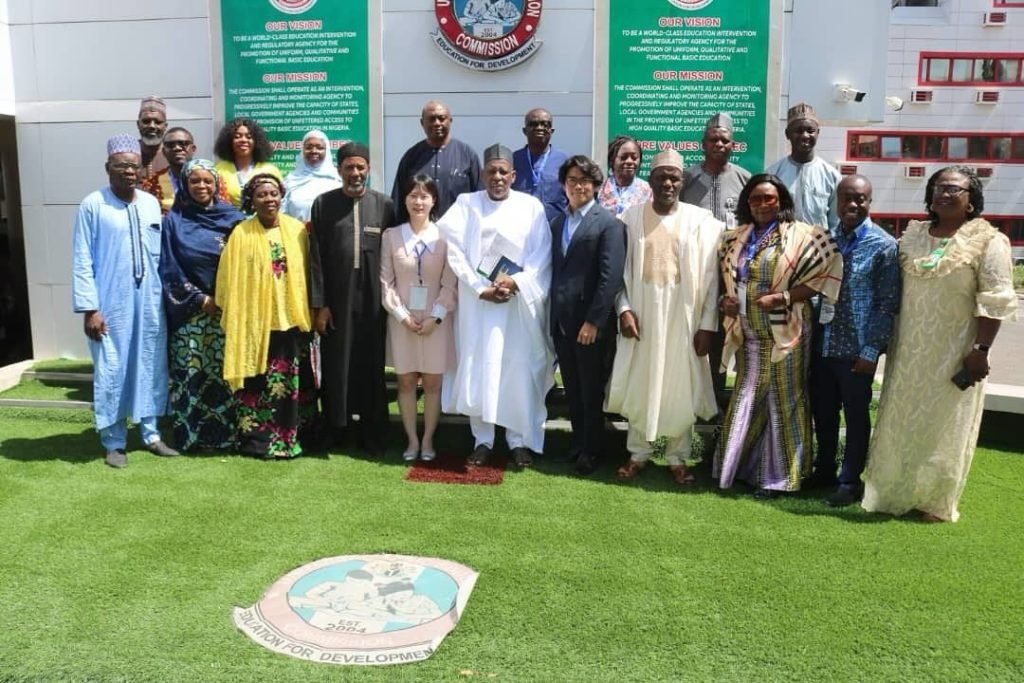
Challenges Ahead and the Road to Sustainability
While the initial phase has laid a solid foundation, both UBEC and KOICA recognise that the next leg of the journey will demand attention to scale, sustainability and equity. Kim underlined that the focus must shift “from implementation to sustainability and scale” in order to ensure that every child, regardless of background, can access the opportunities of a digital-age education.
Professor Hwang reiterated that even the most advanced digital classroom will falter without stable electricity, broadband connectivity and commitment at all levels—from state governments to local school management boards. He proposed a two-tier training strategy for both teachers and school leaders across model smart schools and further zones, and recommended stronger engagement of parents, School-Based Management Committees (SBMCs) and other community stakeholders to build social support for digital education innovation.
In short, while the first phase has proved what is possible, the next step will test whether the model can be scaled, sustained and adopted widely across Nigeria’s diverse basic education landscape.
Implications for Nigeria’s Education Future
For Nigeria, the significance of this partnership extends beyond smart classrooms. By integrating technology into teaching and learning at the basic education level, the UBEC–KOICA collaboration could shape how future generations access knowledge, develop skills and respond to a rapidly changing global economy.
Teachers trained under the initiative are becoming change-agents in their schools; students exposed to creative, interactive and collaborative learning are gaining a competitive edge. If scaled effectively, the model represents a chance to leapfrog traditional constraints—overcrowded classrooms, limited teacher resources, outdated content—and to support inclusive, quality education for all.
As UBEC and KOICA embark on the next phase, the partnership sends a powerful message: in Nigeria’s drive to enhance basic education, innovation, partnerships and shared vision are as important as funding or infrastructure. The promise is clear: a future where learners across Nigeria have access not merely to schools, but to smart schools—places where technology, pedagogy and community converge to prepare young Nigerians for the challenges of tomorrow.
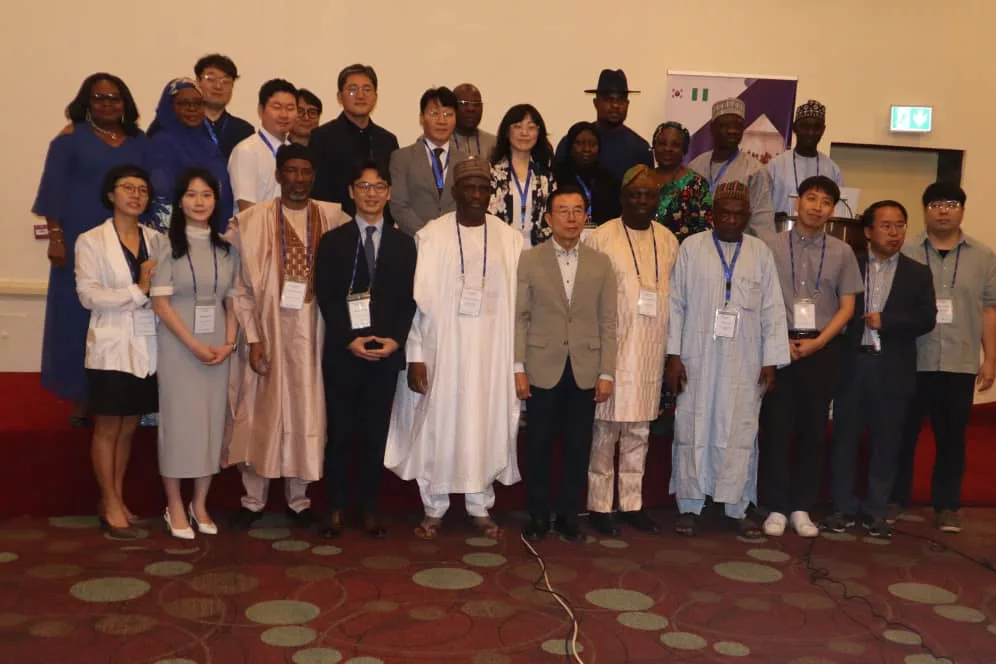
ConClusion
This renewed pledge by UBEC and the Korean agency underlines Nigeria’s growing momentum in digital learning. The journey ahead will require sustained commitment, cross-sector collaboration and diligent follow-through—but the foundation has been firmly laid.
Join Our Social Media Channels:
WhatsApp: NaijaEyes
Facebook: NaijaEyes
Twitter: NaijaEyes
Instagram: NaijaEyes
TikTok: NaijaEyes
READ THE LATEST EDUCATION NEWS


